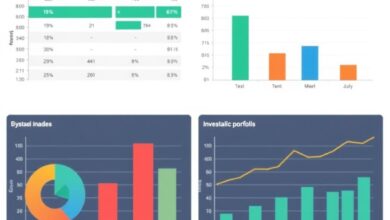How to protect your investments against fraud

Vigilance is your first line of defense in the battle against financial deception. Regularly monitor your accounts for unusual activity and stay informed about the latest scams targeting investors. Knowledge is power; understanding common tactics used by fraudsters can help you spot red flags early.
Implementing robust security measures is non-negotiable. Utilize multi-factor authentication on your trading platforms and ensure that your passwords are strong and unique. Consider employing encryption tools to safeguard sensitive information. A proactive approach to cybersecurity can significantly reduce vulnerabilities.
Awareness of ongoing schemes is crucial. Subscribe to financial news outlets or fraud alert services that provide updates on emerging threats. Participate in online forums or local investment groups where members share experiences and insights related to potential scams. This community engagement enhances collective knowledge and fortifies defenses against deceitful practices.
Identifying Common Fraud Types
Awareness of prevalent scams is the first line of defense. Phishing attacks, often executed via email or fake websites, lure users into revealing sensitive information. Always verify the source before entering any personal data.
Ponzi schemes promise high returns with little risk, relying on new investors to pay earlier ones. Research the legitimacy of investment opportunities and be wary of promises that seem too good to be true.
Investment platforms can also be breeding grounds for fraudulent activity. Ensure that any platform you use is regulated and has a solid reputation. Look for reviews and regulatory compliance before committing funds.
Fake initial coin offerings (ICOs) have surged in popularity, enticing investors with innovative ideas but often resulting in financial loss. Scrutinize whitepapers and team backgrounds to avoid falling victim to these scams.
Romance scams exploit emotional connections, leading individuals to send money under false pretenses. Be cautious about sharing financial details with anyone met online, regardless of the relationship’s nature.
Lastly, stay updated on emerging threats as scammers adapt their tactics continuously. Regularly review security protocols and educate yourself on the latest fraud types to maintain robust defenses against potential threats.
Due Diligence Practices
Verify the credibility of platforms before engaging. Research their history, user reviews, and regulatory compliance. Look for licenses issued by recognized authorities, which can enhance trustworthiness.
Examine the security protocols in place on platforms. Ensure they utilize encryption technologies to protect sensitive information. A robust security infrastructure is a non-negotiable aspect of any legitimate service.
Maintain a high level of awareness regarding common scams associated with specific sectors. Familiarize yourself with tactics employed by fraudsters, such as phishing emails or fake investment opportunities. Recognizing these signs can be pivotal in safeguarding assets.
Utilize third-party resources for additional verification. Independent audits and reports from financial analysts can provide an unbiased view of a platform’s legitimacy. Engaging with industry experts can also bring valuable insights into potential red flags.
Engage in continuous monitoring post-investment. Regularly check for any unusual activity or changes in platform policies that may indicate emerging threats. Staying informed allows for timely interventions if issues arise.
Build a network of informed contacts who share insights about market trends and potential scams. Collaboration and communication within this network can enhance collective awareness and help identify new risks promptly.
Using Technology for Security
Implement multi-factor authentication on all financial platforms. This adds an extra layer of security beyond just a password, making it more difficult for scammers to gain unauthorized access.
Utilize encryption tools to secure sensitive data during online transactions. End-to-end encryption ensures that only the intended recipient can access the information, significantly reducing the risk of interception by malicious entities.
Regularly update software and applications to patch vulnerabilities that could be exploited by cybercriminals. Outdated systems are prime targets for scams, as they may lack the latest security features.
Be cautious with public Wi-Fi networks. Use a Virtual Private Network (VPN) to encrypt your internet connection when accessing financial accounts in such environments, protecting yourself from potential threats lurking on unsecured networks.
Implement security alerts that notify you of unusual account activity. Immediate awareness allows for prompt action if any suspicious behavior is detected, minimizing potential losses.
Research and choose reputable platforms known for robust security measures and positive user feedback. Prioritize those that offer transparent policies regarding fraud prevention and data protection.
Educate yourself about emerging scams through webinars or online resources. Staying informed helps recognize red flags, allowing you to maintain a proactive stance against potential threats.
Adopt biometric verification methods like fingerprint or facial recognition where available. These technologies enhance security by adding unique identifiers that are challenging for fraudsters to replicate.
Monitor credit reports regularly for signs of identity theft or unauthorized activity. Early detection can help mitigate long-term damage resulting from fraudulent actions.
Recognizing Red Flags
Be alert to the signs that may indicate potential scams. Vigilance is key in identifying suspicious activities or offers.
- Unrealistic Promises: If a platform guarantees high returns with little risk, exercise caution. Genuine opportunities are never risk-free.
- Lack of Transparency: Always seek clear information regarding fees, investment strategies, and company credentials. Avoid platforms that are vague or evasive about their operations.
- Poor Online Presence: Research the background of any service. A lack of reviews or an obscure website can be red flags.
- Pressure Tactics: Be wary of anyone pushing for immediate decisions or requiring swift financial commitments. Legitimate opportunities allow time for consideration.
- Unsolicited Communications: Cold calls, emails, or messages promoting investments should raise concerns. Confirm the legitimacy before engaging further.
Employ due diligence on platforms by verifying licenses and regulatory compliance to ensure security. Cross-check information through multiple sources and consult trusted advisors if uncertain.
The combination of heightened awareness and proactive measures can significantly reduce exposure to deceitful schemes. Stay informed and skeptical; it’s your best defense against financial exploitation.
Reporting Suspicious Activities
Immediately report any unusual behavior related to financial transactions. Utilize established channels such as regulatory agencies, law enforcement, or internal compliance departments. Provide detailed information: transaction dates, amounts, involved parties, and communication records to facilitate investigations.
Awareness is key; familiarize yourself with local and national hotlines dedicated to fraud reporting. Many institutions have specific protocols for whistleblowers that ensure confidentiality while addressing potential scams.
Maintain vigilance in tracking your accounts regularly. Any discrepancies should trigger immediate action. Document everything meticulously; this not only aids in investigations but also reinforces security measures within your own operations.
Educate peers about the importance of reporting suspicious activities. Create a culture of transparency where individuals feel empowered to speak up without fear of repercussions. Collective awareness enhances overall protection against fraudulent schemes.
Lastly, follow up on reports made. Engaging with authorities can provide updates on actions taken and reinforce community efforts in combating financial crimes. Your proactive approach can contribute significantly to broader efforts in maintaining integrity within financial systems.







